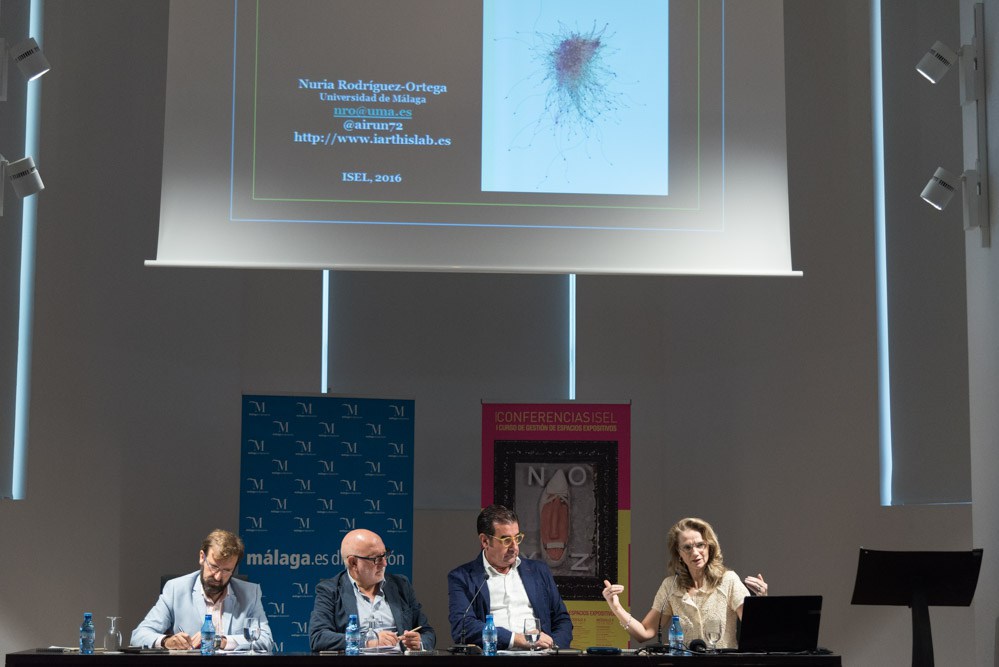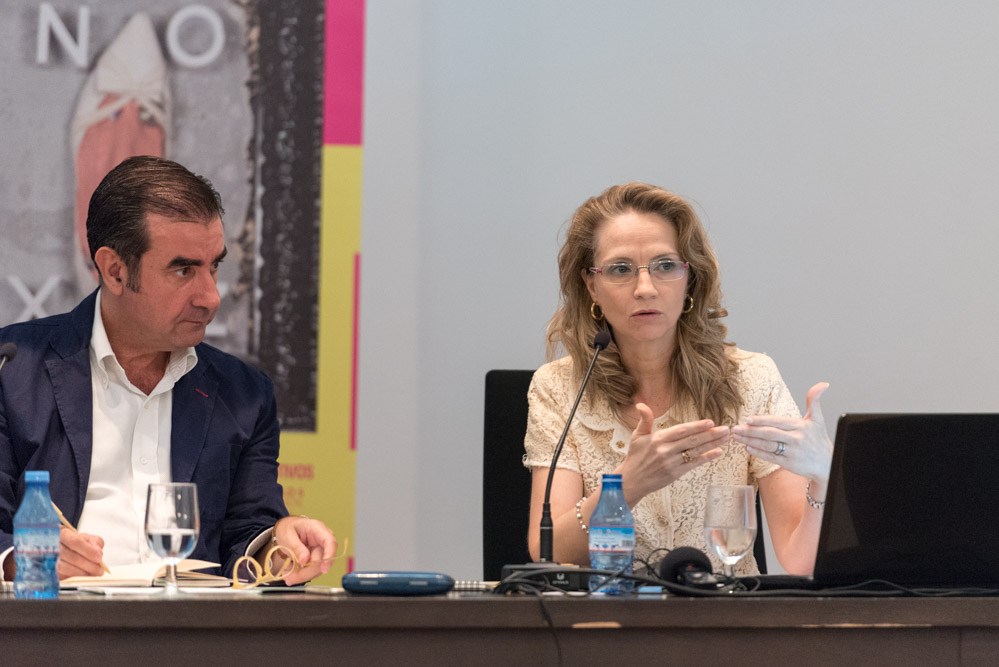Lecture delivered by Nuria Rodríguez Ortega
Venue: Diputación Provincial de Málaga (Sede de la Plaza de la Marina)
Date: July 20th, 2016
Lecture delivered by Nuria Rodríguez Ortega
Venue: Diputación Provincial de Málaga (Sede de la Plaza de la Marina)
Date: July 20th, 2016
How might we break down the Spanish art exhibition ecosystem to rebuild this in a new space algorithmically created through the computational processing of thousands of data about temporary art exhibitions?
Which new learning about the social dynamics related to art exhibitions might we get through the reading of graphs and metrics?


These two questions framed the lecture delivered by Nuria Rodríguez Ortega as part of the seminar Management of exhibition spaces organized by the ISEL (Diputación Provincial of Málaga).
Taking as base the associations theory proposed by French sociologist Bruno Latour (also known as Actor-Network Theory), Nuria Rodríguez approached the idea of exhibitions as socio-cultural mediation agents, which convey a set of dynamic and changing relations among heterogeneous actors. Such relations (or associations) can be traced and analyzed -according to Latour’s thesis- by means of the computational processing of massive data about art exhibitions, as such recorded in the Expofinder system (www.expofinder.es). As Nuria Rodríguez demonstrated, this analysis has the capacity of unveiling the structures and operating logics that underlie the art exhibition ecosystem.
The approach addressed fosters an interesting perspective so that the focus of attention, rather than on the exhibitions per se, is concentrated on the mediation process as part of a structure that reveals the relations that characterize the institutions of cultural production. In turn, this approach also allows to go beyond the traditional methodology of analyzing temporary exhibitions as discrete objects (or events), or according to a bilateral comparative model, usual in Art History discipline, to explore a more connective and constellational one. Moreover, and given that in a network structure the intrinsic attributes of actors, such as the socio-professional relevance conferred by cultural institutions (academy, museums, critique…) are not taking into consideration, but only those that are directly connected with their position and with the role played in the network, this approach also allows to elaborate alternative interpretations about the relevance of the actors involved in the art exhibition dynamics.
More info at: http://isel.org/i-curso-de-gestion-de-espacios-expositivos-modulo-2/

 The Exhibitium Project participated in DH2016 Conference (Cracow, 12-15 July,...
The Exhibitium Project participated in DH2016 Conference (Cracow, 12-15 July,...We may request cookies to be set on your device. We use cookies to let us know when you visit our websites, how you interact with us, to enrich your user experience, and to customize your relationship with our website.
Click on the different category headings to find out more. You can also change some of your preferences. Note that blocking some types of cookies may impact your experience on our websites and the services we are able to offer.
These cookies are strictly necessary to provide you with services available through our website and to use some of its features.
Because these cookies are strictly necessary to deliver the website, refusing them will have impact how our site functions. You always can block or delete cookies by changing your browser settings and force blocking all cookies on this website. But this will always prompt you to accept/refuse cookies when revisiting our site.
We fully respect if you want to refuse cookies but to avoid asking you again and again kindly allow us to store a cookie for that. You are free to opt out any time or opt in for other cookies to get a better experience. If you refuse cookies we will remove all set cookies in our domain.
We provide you with a list of stored cookies on your computer in our domain so you can check what we stored. Due to security reasons we are not able to show or modify cookies from other domains. You can check these in your browser security settings.
We also use different external services like Google Webfonts, Google Maps, and external Video providers. Since these providers may collect personal data like your IP address we allow you to block them here. Please be aware that this might heavily reduce the functionality and appearance of our site. Changes will take effect once you reload the page.
Google Webfont Settings:
Google Map Settings:
Google reCaptcha Settings:
Vimeo and Youtube video embeds:
You can read about our cookies and privacy settings in detail on our Privacy Policy Page.
Política de Privacidad